AI and Chinese Culture Day: HSE University Welcomes Students and Postgraduates from Tsinghua University
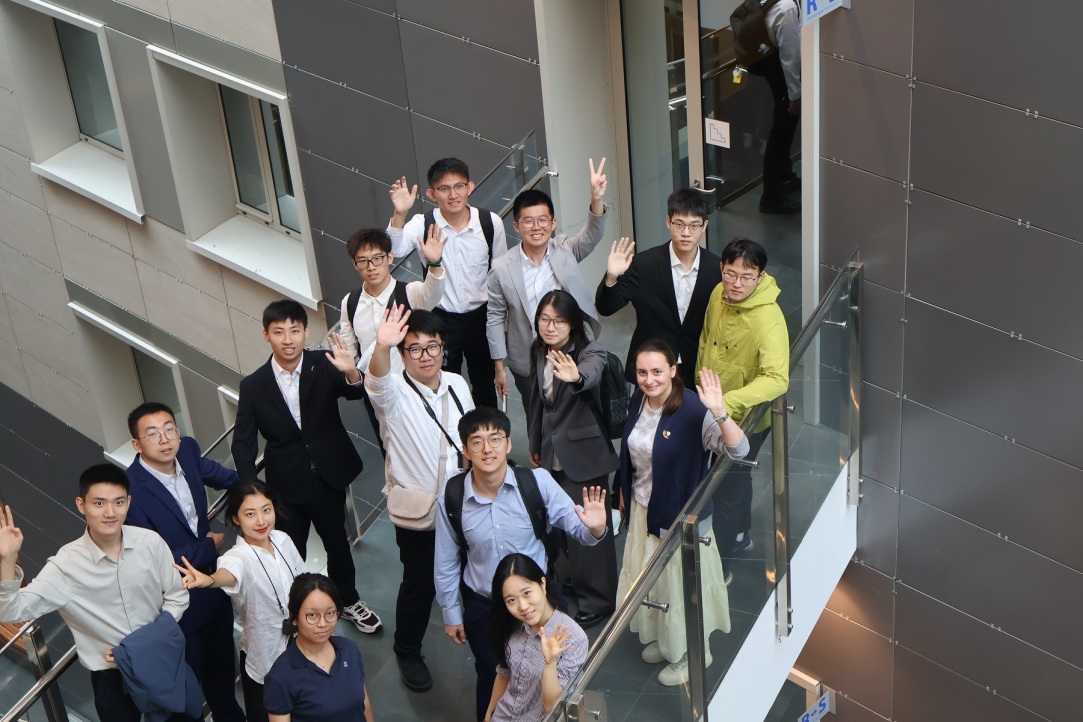
In July 2025, HSE University hosted a group of young scholars from Tsinghua University. During their visit, they attended a lecture on the latest developments in artificial intelligence at the Faculty of Computer Science and held workshops for HSE students as part of Chinese Culture Day.
The young researchers from Tsinghua’s Department of Automation, led by Associate Professor Shang Chao of the same department, are currently travelling the world as part of the Mobius project, visiting universities, research institutions, and corporations. This summer, their itinerary included Moscow and St Petersburg, where they visited HSE University, Bauman Moscow State Technical University, ITMO University, Sber, Kaspersky Lab, and the Russian branch of Huawei.
Their visit to HSE was organised by the Centre for International Student Mobility and Educational Projects, part of the University’s Department of Internationalisation. Fourteen students representing the Department of Automation, the Academy of Arts and Design, and the School of Economics and Management at Tsinghua University attended a lecture delivered by Daria Kasyanenko, Senior Lecturer at the Big Data and Information Retrieval School and Academic Supervisor of the Data Engineering programme. They learned about the application of AI tools in teaching at the Faculty of Computer Science and within the HSE AI Research Centre.
Tsinghua students also hosted a Chinese Culture Day at HSE, featuring workshops, a traditional tea ceremony, and various refreshments. HSE students attended the event and had the opportunity to try their hand at fan painting, making aromatic sachets, sugar painting, and practising their Mandarin language skills.
Peng Ziyi, team lead, student at the Department of Automation, Tsinghua University

— The presentation on the Faculty of Computer Science and the lecture on the application of AI in education were truly insightful. They gave our team a deeper understanding of how technology is shaping the future of education. The campus tour that followed was another highlight, offering us a glimpse into the dynamic academic environment of HSE. Our team was particularly impressed by the innovative approaches and dedication of both the teachers and students.
On Chinese Culture Day, July 24th, it was a pleasure to see HSE students so enthusiastic and engaged with Chinese culture. We were especially pleased to meet students with a genuine interest, making the event even more meaningful. We are grateful to the Centre for International Student Mobility and Educational Projects for organising the visit and inviting the students. We were inspired by the vibrant academic atmosphere, the warm hospitality, and the keen interest in Chinese culture shown by HSE students. We would love to continue our studies here in the future.
Liu Shuran, postgraduate student at Tsinghua University
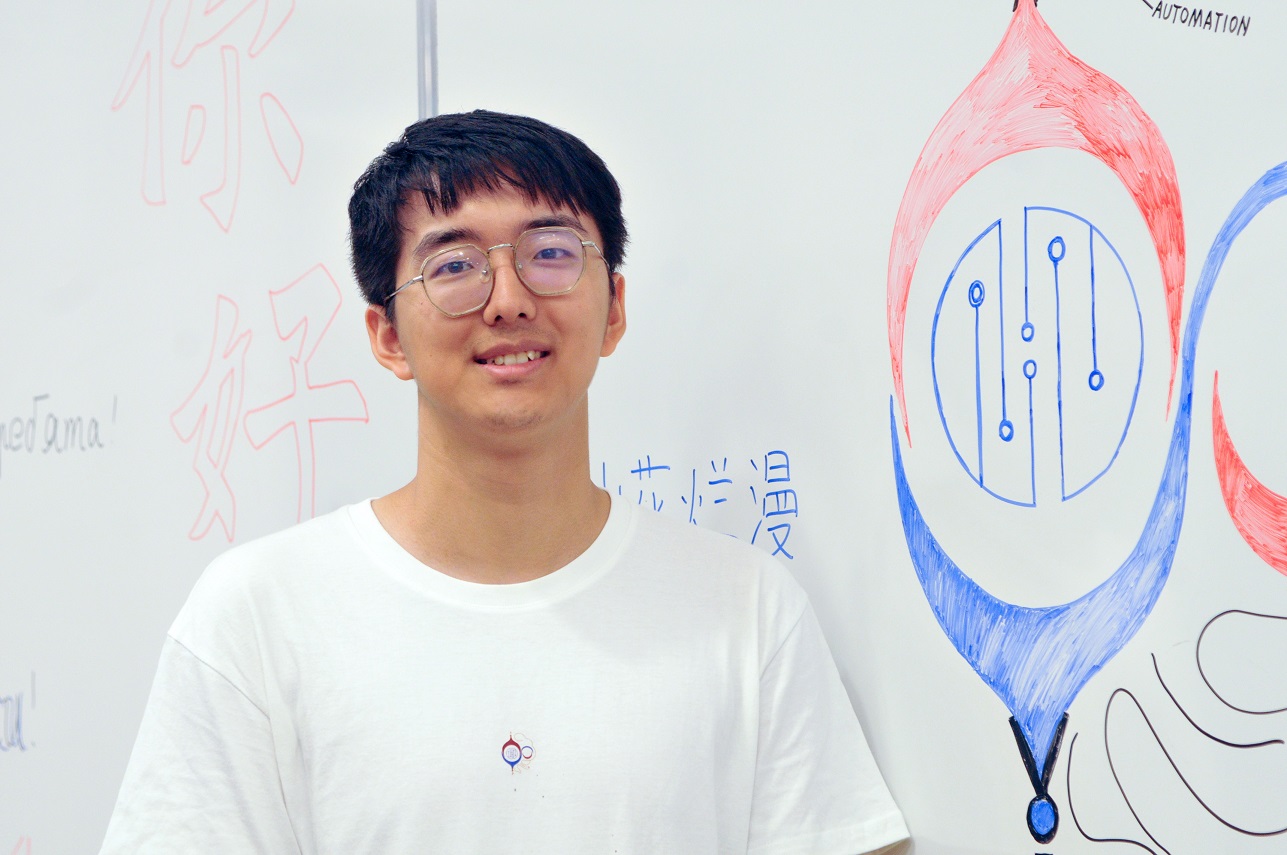
— We saw many impressive sights in Moscow and St Petersburg, but the most valuable aspect of our trip was undoubtedly the information we gained from first-hand sources while visiting universities and companies. We attended presentations on the practical applications of AI in various sectors and participated in discussions with experts. Each of us took away something useful for our own research projects.
I would particularly like to highlight the lecture by Daria Kasyanenko from HSE University. I was amazed to learn how significant a role digital literacy plays in the educational process at HSE. Students from all disciplines learn how to effectively use AI, code, and analyse data. I believe this is something Chinese universities should take note of.
Tela Meng, student at the Department of Automation, Tsinghua University

— Moscow offers a fascinating mix of history and modernity, and the metro is like an art museum!
I am glad that during our trip we had the opportunity to introduce local people to Chinese culture. In addition to the Chinese Culture Day at HSE, we also organised an outdoor event on Arbat Street. To our surprise, passers-by showed great interest—everyone wanted to make their own fan or aromatic sachet.
At HSE University, I really enjoyed the international atmosphere, and I was pleasantly surprised by how confidently and correctly the students spoke Chinese. Well done!
Jing Haoda, student at the Department of Automation, Tsinghua University
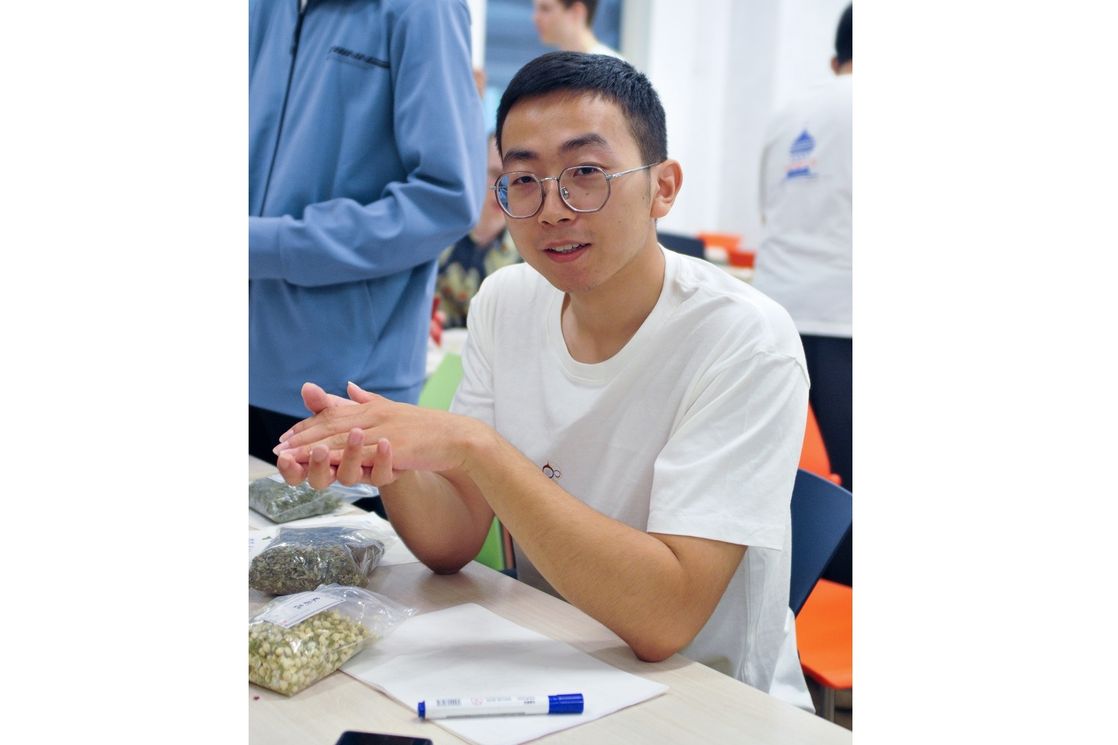
— I studied Russian for one semester in China, and this trip gave me a chance to test my knowledge in real life, helping my classmates deal with everyday matters in Russia as best I could. While my Russian is still not very strong, this trip has motivated me to continue learning. I also translated signs and labels into Russian for our cultural event. When I return to Russia, and I hope to do so more than once, I want to be able to communicate freely with everyone here.
Of all the organisations we visited, I would especially like to mention Kaspersky Lab. In large Chinese tech companies, it is common to follow the 996 schedule—9 am to 9 pm, six days a week. It was interesting to learn that Kaspersky Lab’s corporate culture allows employees to maintain a healthy work-life balance.
Sofia Tarasova, third-year student on the double degree programme between HSE University and Kyung Hee University ‘Economics and Politics in Asia’

— I attended the Chinese Culture Day event organised by the students from Tsinghua. They were so friendly and cheerful that time seemed to fly by. It was great to practise my Chinese with native speakers in such a natural, relaxed setting, and perhaps even become friends. I really hope there will be more events like this at HSE in the future.
My favourite part was making a fan. I had always wanted one since childhood, but have never had a chance to try. Now I will keep it at home as a memento of the day.
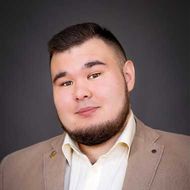
Weidali Senotrusov, Head of the HSE Chinese Club
— We were delighted to welcome the students and postgraduates from Tsinghua University to HSE. It was wonderful to see students come together under one roof—those who had achieved top marks in their Gaokao or Unified State Exam to enter their respective universities—sharing their experiences and exchanging impressions. The Tsinghua students were especially enthusiastic about their visit to VDNH and, in particular, the Museum of Cosmonautics. They really enjoyed Moscow and some even began to seriously consider coming to HSE as academic exchange students.
Moreover, the Tsinghua students unanimously praised the very high level of Chinese among HSE’s Asian Studies students—a clear sign of their strong linguistic training. This is a very good indicator showing the high quality of Chinese language education at HSE.
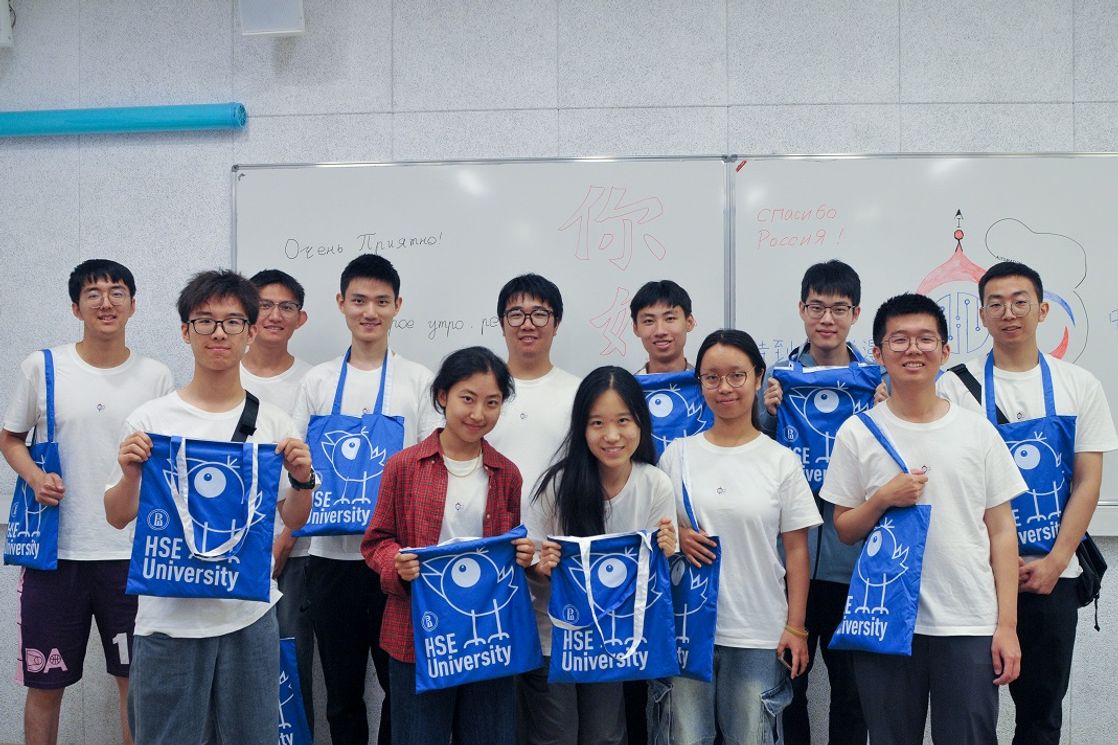
See also:
HSE Tops Ranking of Universities Participating in Priority 2030 Programme
The Russian Ministry of Science and Higher Education has published an updated list of participants in the Priority 2030 programme. A total of 106 universities will receive support this year. HSE University was included in the first group and topped the ranking.
‘Keep Working, Keep Publishing—Consistency Matters’
Ziyuan Zhu, from Beijing, China, is an international PhD student at the Institute for Public Administration and Governance at HSE University in Moscow. In this interview with the HSE News Service, Ziyuan talks about how studies can influence one’s outlook on life, comparing public service models in different countries, and why being a Chinese student in Russia is advantageous in research.
HSE Scientists Optimise Training of Generative Flow Networks
Researchers at the HSE Faculty of Computer Science have optimised the training method for generative flow neural networks to handle unstructured tasks, which could make the search for new drugs more efficient. The results of their work were presented at ICLR 2025, one of the world’s leading conferences on machine learning. The paper is available at Arxiv.org.
Under a Blooming Magnolia: How Russian and Chinese Scientists Create Solar Cells of the Future
Schola continues to introduce the winners of the International Academic Cooperation competition. In today's issue, Professor Andrey Vasenko, Deputy Head of the Scientific and Educational Laboratory of Quantum Nanoelectronics at Tikhonov Moscow Institute of Electronics and Mathematics (MIEM), speaks about the joint project between his laboratory and the Peking University research team— ‘Engineering of highly efficient and stable perovskite solar cells.’
Neural Network Trained to Predict Crises in Russian Stock Market
Economists from HSE University have developed a neural network model that can predict the onset of a short-term stock market crisis with over 83% accuracy, one day in advance. The model performs well even on complex, imbalanced data and incorporates not only economic indicators but also investor sentiment. The paper by Tamara Teplova, Maksim Fayzulin, and Aleksei Kurkin from the Centre for Financial Research and Data Analytics at the HSE Faculty of Economic Sciences has been published in Socio-Economic Planning Sciences.
Graduate School of Business MBA Students Take Part in Offsite Module in China
MBA students of the HSE Graduate School of Business HSHSE have recently completed the international component of their studies at the School of Economics and Management at Tsinghua University. The module focused on developing business through innovation. The participants discussed the impact of new technologies on corporate structures and visited companies operating in robotics and renewable energy.
Larger Groups of Students Use AI More Effectively in Learning
Researchers at the Institute of Education and the Faculty of Economic Sciences at HSE University have studied what factors determine the success of student group projects when they are completed with the help of artificial intelligence (AI). Their findings suggest that, in addition to the knowledge level of the team members, the size of the group also plays a significant role—the larger it is, the more efficient the process becomes. The study was published in Innovations in Education and Teaching International.
Advancing Personalised Therapy for More Effective Cancer Treatment
Researchers from the International Laboratory of Microphysiological Systems at HSE University's Faculty of Biology and Biotechnology are developing methods to reduce tumour cell resistance to drugs and to create more effective, personalised cancer treatments. In this interview with the HSE News Service, Diana Maltseva, Head of the Laboratory, talks about their work.
Meeting with Xinhua Delegation: Discussion on Contemporary Journalism at HSE
On October 22, 2025, HSE University hosted an open meeting with representatives of the Chinese news agency Xinhua, led by Sun Zhiping, Chief of Staff to the Director General. Participants discussed current challenges in journalism and the operational specifics of news agencies in today’s media landscape. Many students took the opportunity to ask questions and practise speaking Mandarin. The visit was organised by the Faculty of World Economy and International Affairs in collaboration with the HSE Institute of Media and the TASS news agency.
HSE Participates in Conference on International Exchange of Professionals in China
From October 21 to 24, 2025, the 23rd Conference on International Exchange of Professionals took place in Shanghai and Beijing, bringing together more than 7,000 scientists and experts from around the world. HSE University was represented by Ivan Arzhantsev, Dean of the Faculty of Computer Science, and Vasily Gromov, Head of the Laboratory for Semantic Analysis of the Centre for Language and Semantic Technologies.


